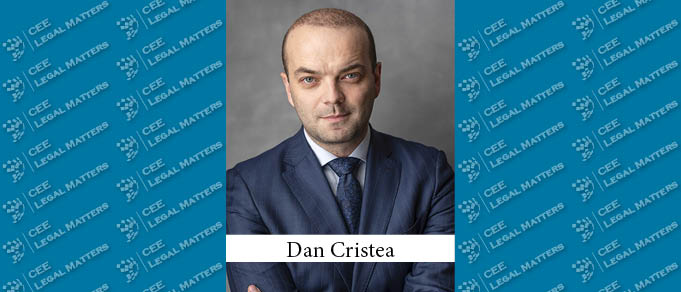The National Recovery and Resilience Plan (PNRR), the pandemic’s legal implications, and energy are the hottest topics in Romania right now, with public procurement being a common thread, according to Tuca Zbarcea & Asociatii Litigation Partner Dan Cristea.
As in most other CEE countries, there is a lot of buzz surrounding the PNRR, Cristea says. “A large number of infrastructure, environment, and social resilience projects will have to be drawn up and implemented quickly. Because of the 2026 execution deadline, the contracts will largely have to be implemented this year,” he explains. He says there is already a significant pipeline of related work, on both public procurement and litigation matters: “health, infrastructure, the environment – lots of fields are expecting quite some work, with lawyers either involved in the preparation of bids, consulting public authorities, or awaiting tender-related disputes as well as the litigation of public procurement awards.” Impressive amounts of money are earmarked for these investments, “so it’s a high-stakes game, and the 2026 deadline is not making matters any easier,” he notes.
“And the public procurement contracts inked in 2019 and 2020 are faced with the massive increase in resource prices,” Cristea adds. “The winners of those tenders still have to execute them for 2020 money. The government has provided an ordinance on updating the financial terms, but the adjustment might not be enough. So, there’s a debate over the need to either improve the compensation mechanism or introduce further contract adjustments,” he explains.
Cristea reports there is still a lot of talk and activity surrounding the biotech and health subjects and “anything to do with the pandemic, really. Still seeing a bunch of contracts for tests, masks, and similar products that are needed and procured by the state.” He says a lot of tendering work is still being done, with an urgency: “lawyers have to react rapidly, both because the tenders themselves are fast, and because court decisions are handed out quickly.”
And the pandemic’s broader, human rights-related implications are also under consideration in Romania, according to Cristea. “There is also, as in every country, the need to always watch the balance between individual rights and security, public health-related or otherwise. A number of cases have been brought forth and are awaiting High Court of Cassation and Justice or Constitutional Court decisions on whether some of the COVID-19 mitigation restrictions were proportional or not.”
The other big issue everyone is watching right now is energy, according to Cristea, as it relates to fiscal adjustments, the national budget, trading monopolies, and the increased prices of, well, everything. “There has been a lot of discussion about the need for fiscal adjustments as a way to address the steeply rising prices of gas and electricity. A VAT reduction from 19% to 5%, same as for other basic goods, is one of the likelier solutions advanced by the government and could come into force very soon,” he says. Cristea thinks a combination of fiscal adjustments and other measures will be introduced but says those will lead to further issues, down the line: “decisions will have to be made on balancing the budget as well – on how to cover those VAT-related losses – and new fiscal approaches will be needed to balance such reductions.”













